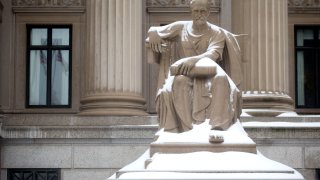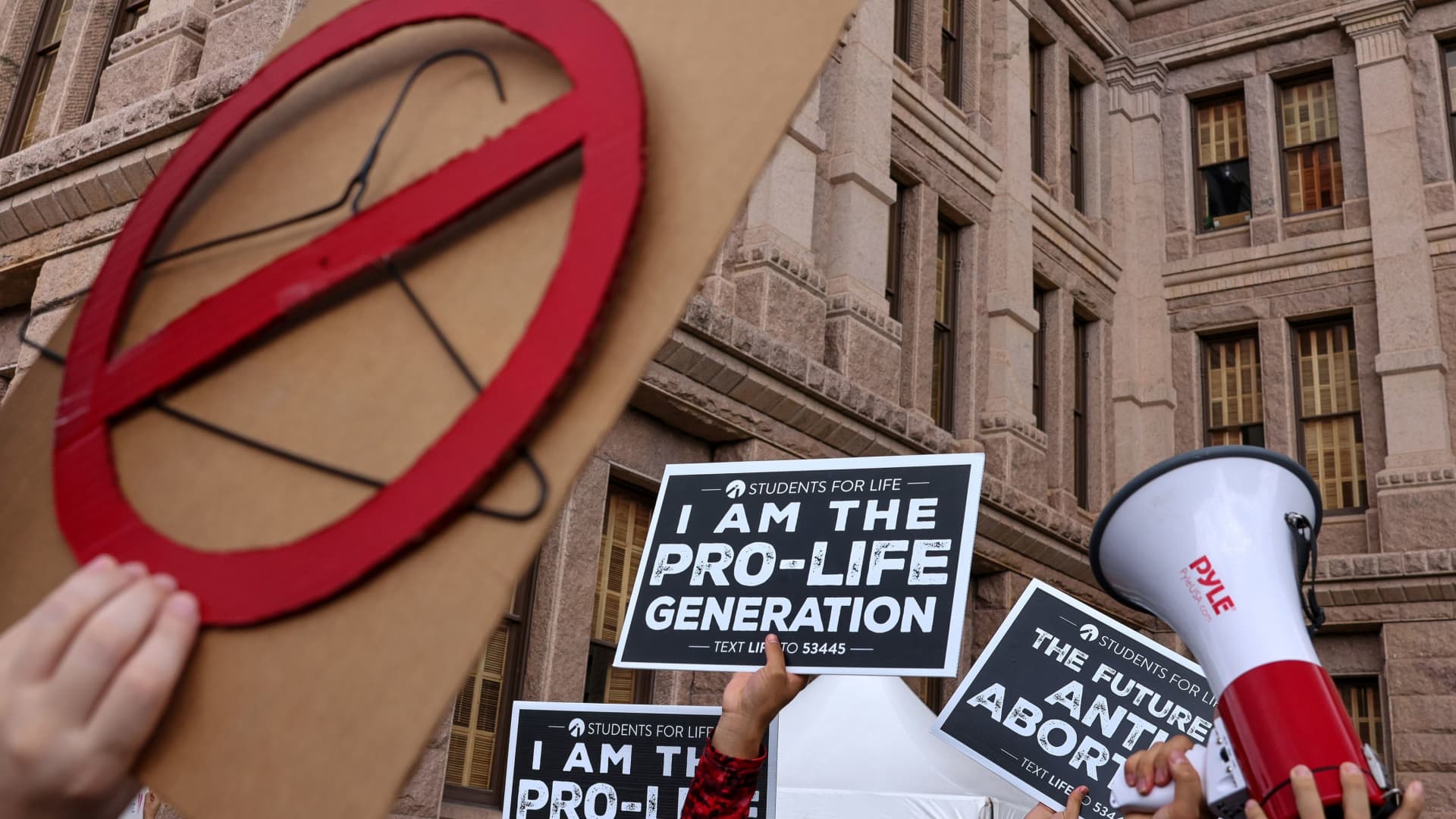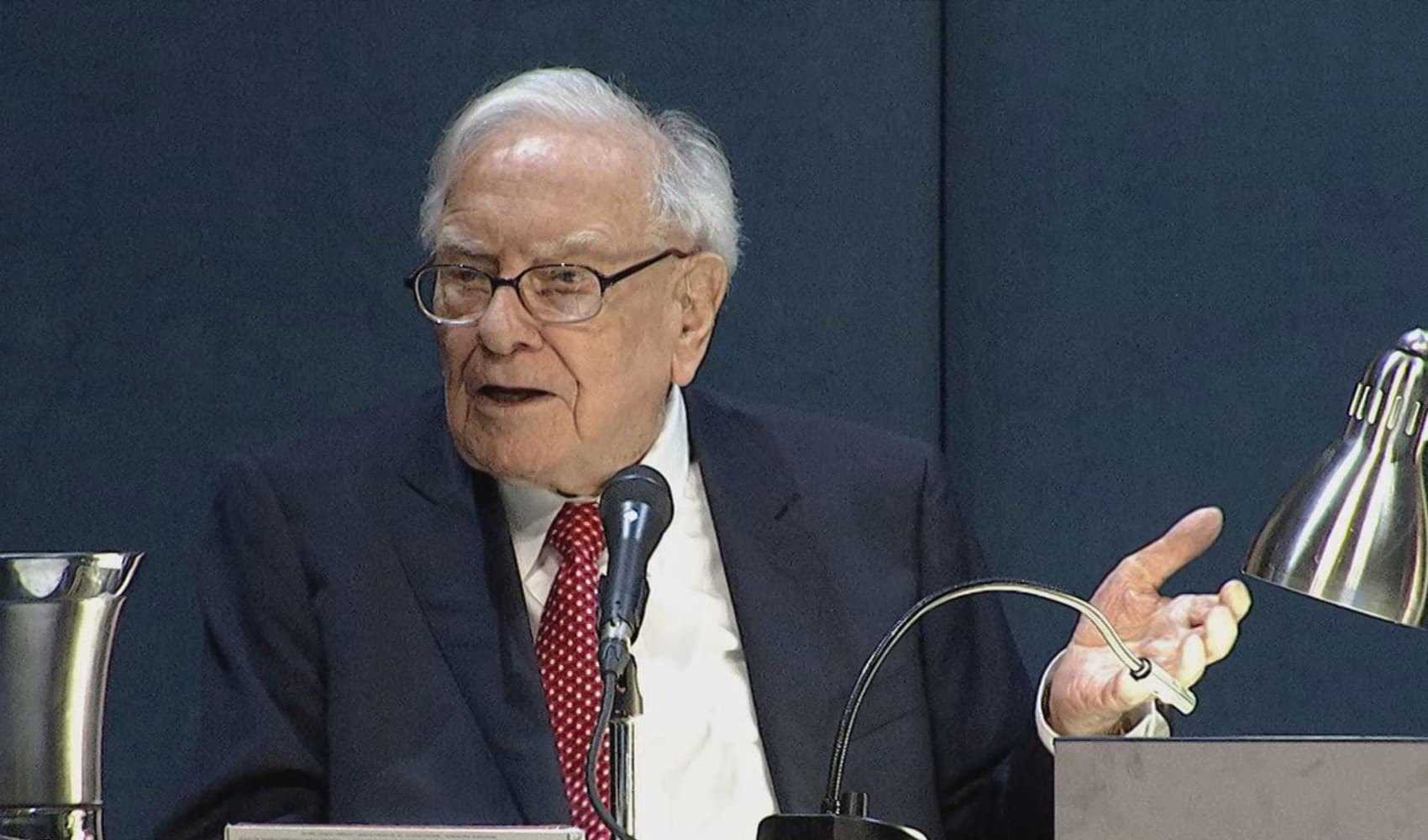
- Two abortion opponents who sued the National Archives museum after they and other visitors were ordered to hide "pro-life" messages on clothing during visits there will get personal tours of the museum and apologies.
- The National Archives and the two plaintiffs agreed to the concessions as part of a proposed order filed in U.S. District Court in Washington, D.C.
- The order also would at least temporarily legally enjoin the museum from barring visitors based on wearing clothing or buttons "that display protest language, including religious and political speech."
- The agreement does not apply to a separate, similar lawsuit filed in the same court by nearly a dozen anti-abortion opponents against the National Air and Space Museum in Washington.

Two abortion opponents who sued the National Archives museum after they and other visitors were ordered to hide "pro-life" messages on clothing during visits there will get personal tours of the museum and apologies, while staff will be warned against repeating the First Amendment faux pas.
The National Archives and the two plaintiffs agreed to the concessions as part of a proposed order filed in U.S. District Court in Washington, D.C.
We're making it easier for you to find stories that matter with our new newsletter — The 4Front. Sign up here and get news that is important for you to your inbox.
The order also would at least temporarily legally stop the museum from barring visitors based on wearing clothing or buttons "that display protest language, including religious and political speech."
It also calls for the women's claims to be referred to a mediator for a possible settlement of the case.
The agreement does not cover a third plaintiff. Nor does it resolve the pending suit against the archives, which house the U.S. Constitution, the Declaration of Independence and many other historically significant American documents.
Money Report
The agreement also does not apply to a separate, similar lawsuit filed in the same court by nearly a dozen anti-abortion opponents against the National Air and Space Museum in Washington. Security guards at the museum likewise ordered them to remove or cover up messages opposing abortion on their clothing during visits.
The plaintiffs in that case are students, parents and chaperones from a Catholic school in South Carolina.
The incidents that sparked the lawsuits occurred Jan. 20, when the plaintiffs were visiting the capital city for the annual March for Life, which opposes abortion. The march was the first to be held since the Supreme Court's June decision that overturned its nearly 50-year-old ruling in Roe v. Wade, which had established a federal right to abortion.
Both the National Archives, which is a federal entity, and the Smithsonian Institution, the federally funded organization that operates the Air and Space Museum, last week said their security staffs were wrong to make access to the buildings conditional on visitors hiding clothes with anti-abortion phrases.
The First Amendment of the Constitution prohibits governments and their agencies from restricting free speech.
The proposed order filed Tuesday in the National Archives suit says that one of the plaintiffs, Wendilee Walpole Lassiter, plans to return to the National Archives Museum on Friday wearing clothing and other attire bearing "pro-life messaging." The Virginia resident is a student at Liberty University School of Law, a religious school.
The other plaintiff covered by the order, a 17-year-old Michigan Catholic high school student identified in court records as L.R., plans to return there with such messaging next January for the March for Life.
Each woman is "fearful" that she "will be targeted and will not be permitted to exercise her First Amendment right to freedom of speech," the order says.
Under the agreement, Lassiter and L.R. each will get a "personal tour of the National Archives Museum" during their respective visits, and National Archives staff will extend "a personal apology" to them during those tours.
"The National Archives and Records Administration ("NARA") represents that its
policy expressly allows all visitors to wear t-shirts, hats, buttons, etc., that display protest language,
including religious and political speech," the order says.
"NARA regrets the events of January 20, 2023, and will remind all NARA's security officers at NARA's facilities across the country of the rights of visitors and of the policy," the order says.






